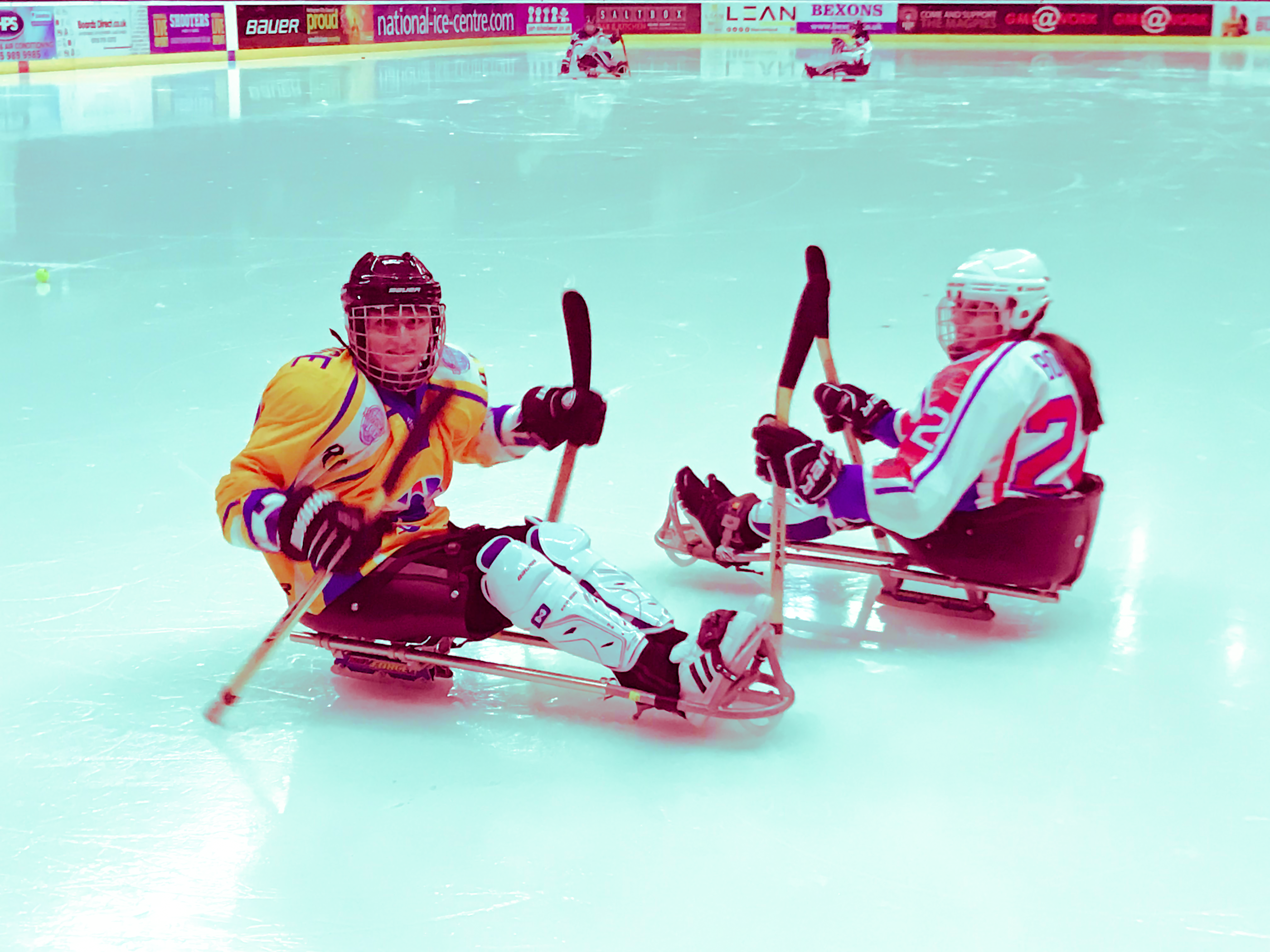Glasgow Ice Centre Ambassador and Wheelchair Curler Aileen Neilson looks into different types of accessible ice sports
For anyone with a disability, there are many sports and activities which are fully accessible. Whether you’re looking for health, wellness, social contact or competition, there is a sport out there for you. The benefits both physically and mentally of participating in sport are huge and the range of ice sports are suitable for all ages.
With a new, multisport ice facility in Glasgow there would be fantastic opportunities for people of ALL abilities to try new sports or carry on playing the sports they love.
Whether it’s curling, ice skating or ice hockey, sport will improve your health, confidence and self-esteem. The sense of accomplishment you feel after a training session, or game is something exceptional. A disability should never hold you back. My disability enabled me to take up wheelchair curling, travel all over the world and represent Scotland at World Championships and Great Britain at three Paralympic games.
However, it’s not all about international competition. For many, it’s the social side of the sport that can be life changing. A chance to get out, meet new people and make new friends while participating in sport.
People of all abilities can try curling. Whether you’re a wheelchair user, if you have a vision impairment, hearing impairment, have an autistic spectrum disorder, learning disability or any other physical impairments, you can get on the ice and give it a go. The sport of curling is enjoyed by both male and females and is one of the few sports where both genders can compete together and against each other. People from age 8 – 80+ can play this enjoyable sport and disabled players can compete with and against mainstream curlers.
Ice skating is another sport which can be accessible to those with a disability. With the creation of the charity ‘Inclusive Skating’, skaters are able to “Live the Dream” and learn to skate with their families and carers in a supportive environment. Skaters with additional challenges are able to compete in a range of competitions which are open to all. Most events are unified so the families, carers and volunteers can also join in. There is a wide range of events in Compulsory Elements, Free Skating, Compulsory Figures, Free Dance, Pattern Dance, Pair Skating, Couples Free Dance, Speed Skating and Synchro events with groups of duets, trios, quartets, teams of 5 to 10 and super teams of 11 to 16.
Ice Sledge hockey is an adaptation of ice hockey designed for players who have a physical disability and was designed to allow participants who have a physical impairment in the lower part of the body. Para ice hockey has been played in the Winter Paralympics since 1994. It is fast paced, exciting and highly physical, it is one of the most watched winter Paralympic sports. Invented in the early 1960s at a rehabilitation centre in Stockholm, Sweden, and played under similar rules to standard ice hockey, instead of skates, players use double-blade sledges that allow the puck to pass beneath. Players use two sticks, which have a spike-end for pushing and navigating and a blade-end for shooting. Although there are no sledge hockey clubs in Scotland (yet), a new ice centre in Glasgow would hopefully give those with a disability the opportunity to try this exciting full contact sport.
Peggy Assinck is a player on the Women’s Canadian Para Ice Hockey team and now lives in Edinburgh. When told of the Glasgow Ice Centre, Peggy was delighted –
“The idea of a multi-sport ice facility in Glasgow that could accommodate a Para Ice Hockey program sounds very exciting. Scotland currently does not have a Para Ice Hockey program but I have met dozens of potential para ice hockey athletes who have demonstrated interest in giving it a try or even forming a team that could compete against other Para Ice Hockey Teams in England and Wales.”
Peggy Assinck
Participating in any of these ice sports can enrich lives, and offers tremendous physical and psychological benefits, whatever your age or ability. Sport can develop confidence and improve your health, and regardless of your disability, you can take part in and enjoy the thrill of ice sports.
You’re twice as likely to be physically inactive if you have a disability. However, when the Glasgow Ice Centre becomes a reality, this multi-sport venue will give everyone the opportunity to get on ice and give it a go.
Photos courtesy of Scottish Curling, Inclusive Skating and Peggy Assinck






